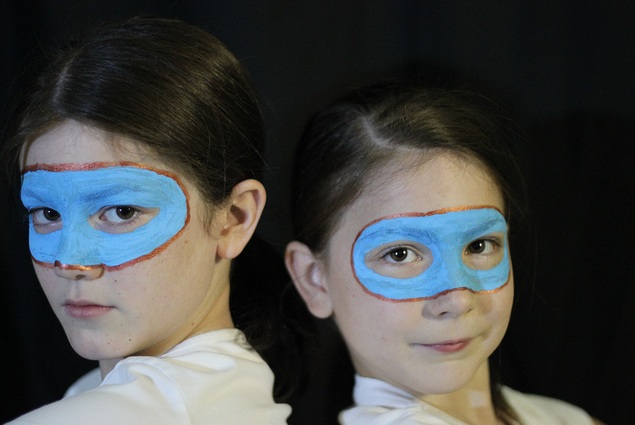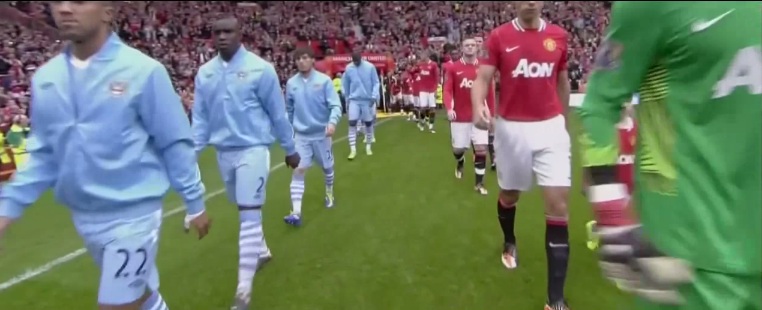Many core tenets of modern day social cognition have their roots in the Gestalt tradition. As an example, let us consider the matter of context. Theory and research within social cognition begins with the knowledge that humans do not exist in vacuums: at any given moment, there are multiple social forces impinging on the individual and these must be given adequate consideration. As such, the importance of context is a theme which runs throughout the entire field of social cognition. Yet this emphasis on context is by no means new. Gestalt psychologists had long recognized its importance decades before and it was their initial interest in this factor which was later built upon in social cognition. Continue reading
Movie Perception Test
Adjusting Emotional Expressions to the Audience
 In social situations people regulate their emotions so that they are adjusted to certain scenarios or individuals. Before we express our emotional attitude, we first check if it is socially acceptable. We can describe this “checking” as facial work (the concept introduced by Goffman; cited in Hübler, 1998). Each person has a face, the public image associated with that particular individual. Continue reading
In social situations people regulate their emotions so that they are adjusted to certain scenarios or individuals. Before we express our emotional attitude, we first check if it is socially acceptable. We can describe this “checking” as facial work (the concept introduced by Goffman; cited in Hübler, 1998). Each person has a face, the public image associated with that particular individual. Continue reading
3 Reasons City cannot afford to take United lightly in the FA Cup
 They say money can’t buy happiness. And they might be right. Trophies though, are another matter entirely. After
They say money can’t buy happiness. And they might be right. Trophies though, are another matter entirely. After buying winning the FA Cup during last year’s campaign, Manchester City has bought played its way to the top of the table at the midway point of the 2011-2012 Premier League season. Continue reading
What is Depression?
 Ever felt “down in the dumps?” Ever had a “case of the blues?” Ever been completely “down and out?” If you answered yes to any of these questions, then relax. You only proved that you’re normal. Whether it’s the result of a major break-up, the loss of a pet, or those crazy female hormones that will get any boyfriend/husband walking on eggshells, sadness is normal. Ask anyone you meet and chances are they will tell you that at some point in their life, they’ve felt depressed. But “feeling depressed” is not the same thing as “having depression.” While a depressed mood must be present for a diagnosis of depression, it is only one of the many symptoms of this disorder. In other words, “feeling depressed” is necessary but not sufficient for a diagnosis of depression. Continue reading
Ever felt “down in the dumps?” Ever had a “case of the blues?” Ever been completely “down and out?” If you answered yes to any of these questions, then relax. You only proved that you’re normal. Whether it’s the result of a major break-up, the loss of a pet, or those crazy female hormones that will get any boyfriend/husband walking on eggshells, sadness is normal. Ask anyone you meet and chances are they will tell you that at some point in their life, they’ve felt depressed. But “feeling depressed” is not the same thing as “having depression.” While a depressed mood must be present for a diagnosis of depression, it is only one of the many symptoms of this disorder. In other words, “feeling depressed” is necessary but not sufficient for a diagnosis of depression. Continue reading
4 Tips for your next interview /meeting/ first impression
 Have an interview or meeting coming up or simply need to make a good impression? Here are 4 tips on how to kill it:
Have an interview or meeting coming up or simply need to make a good impression? Here are 4 tips on how to kill it:
1. Power stance
Whether you want to appear more powerful or need a confidence boost taking a more powerful stance is the way to go. Research has shown that taking a stance that involves open limbs and expansive gestures not only makes people feel more powerful but also increased their testosterone levels (Carney, Cuddy, & Yap, 2010). Such poses take up more space and when you dominate the space your mind gets the message.
2. Gesture for persuasion
Everyone knows that some people use their hands more than others while speaking. These movements are more than just a result of communication. Hand gestures increase the persuasive power of a message compared to no gesturing (Maricchiolo, Gnisci & Bonaiuto, 2009). Gestures that make what you’re saying more understandable are the most effective, such as pointing behind you when referring to the past. Continue reading


